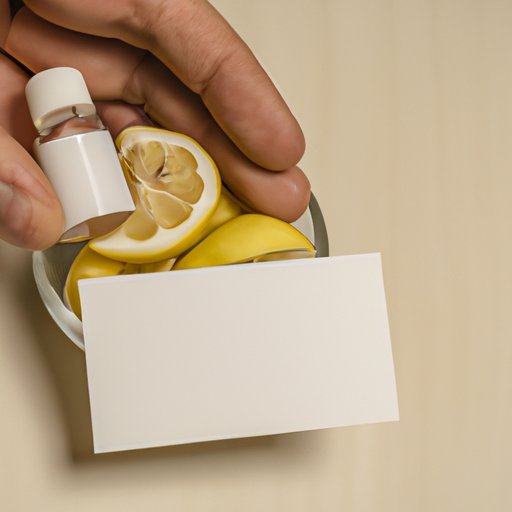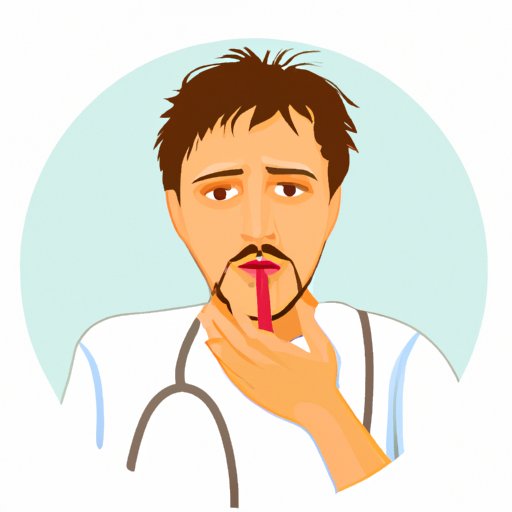
I. Introduction
A wet cough is a type of cough that produces mucus or phlegm. It can be caused by a variety of factors and can be very bothersome. Not only does it make it difficult to breathe and speak, but it can also be a sign of an underlying health issue. The purpose of this article is to provide readers with remedies and lifestyle changes that can help alleviate a wet cough.
II. Causes of a Wet Cough
Wet coughs can be caused by respiratory infections like colds and the flu, allergies or asthma, and irritants such as cigarette smoke or pollution. Respiratory infections irritate your airways and cause them to create mucus to help remove the virus or bacteria. Allergies and asthma cause inflammation in your airways, making them more sensitive to irritants. When irritants come in contact with your airways, they can cause a wet cough.
III. Remedies for Each Cause
A remedy for a wet cough depends on its underlying cause. For example, using a humidifier can help alleviate a wet cough caused by dry air, while avoiding irritants like cigarette smoke can help reduce a wet cough caused by external irritants. Taking allergy medication or using an inhaler can help alleviate wet coughs caused by allergies or asthma.
IV. Home Remedies for Soothing a Wet Cough
In addition to remedies for underlying causes, there are several home remedies that can help soothe a wet cough. Drinking warm tea with honey can help reduce inflammation, while using a saline nasal spray can help flush out mucus. Gargling salt water and breathing in steam from a hot shower or vaporizer can also help ease congestion.
V. Over-the-Counter Medications
Cough suppressants and expectorants are common over-the-counter medications for a wet cough. Cough suppressants work by blocking the cough reflex, while expectorants thin mucus to help it leave your body. Antihistamines can help alleviate coughs caused by allergies as well. It’s important to choose the right medication and use it effectively to avoid unwanted side effects.
VI. Natural Remedies for Soothing a Wet Cough
Essential oils like eucalyptus oil can be used in a diffuser or chest rub to help soothe a wet cough. Ginger can be taken in tea form to help reduce inflammation in your airways. It’s important to use these remedies properly and safely, always carefully following instructions, especially if personal sensitivities are involved.
VII. Lifestyle Changes to Prevent and Treat Wet Coughs
Lifestyle changes can play an important role in preventing and treating a wet cough. Quitting smoking, getting enough sleep, exercising regularly, staying hydrated, and avoiding certain foods or drinks can all help alleviate a wet cough. All of these factors promote overall well-being, and so are very beneficial in this and other health contexts.
VIII. Managing a Wet Cough During the Day and at Night
There are several ways to manage a wet cough during the day and at night. Cough drops can be used during the day to help soothe a cough. Sleeping in an elevated position can reduce postnasal drip, which can exacerbate a wet cough. Applying a mentholated rub on your chest can also help alleviate coughing symptoms.

IX. When to See a Doctor for a Wet Cough
If a wet cough persists for more than a week or is accompanied by additional symptoms such as fever, chest pain, difficulty breathing or concerns of any kind, it is important to seek medical attention. A doctor can perform tests to determine if there is an underlying condition causing the cough and recommend appropriate treatment accordingly. Do not hesitate to request consultation if needed.
X. Conclusion
Wet coughs can be bothersome and can indicate an underlying health problem. In this article, we discussed various remedies and lifestyle changes that can help alleviate a wet cough, whether it is caused by a respiratory infection, allergies or asthma, or irritants. We also discussed natural remedies and over-the-counter medications that can help. Finally, it is very important to remember to consult a doctor if your wet cough persists or if you experience additional symptoms. We encourage readers to try these remedies for a healthier respiratory system overall.





